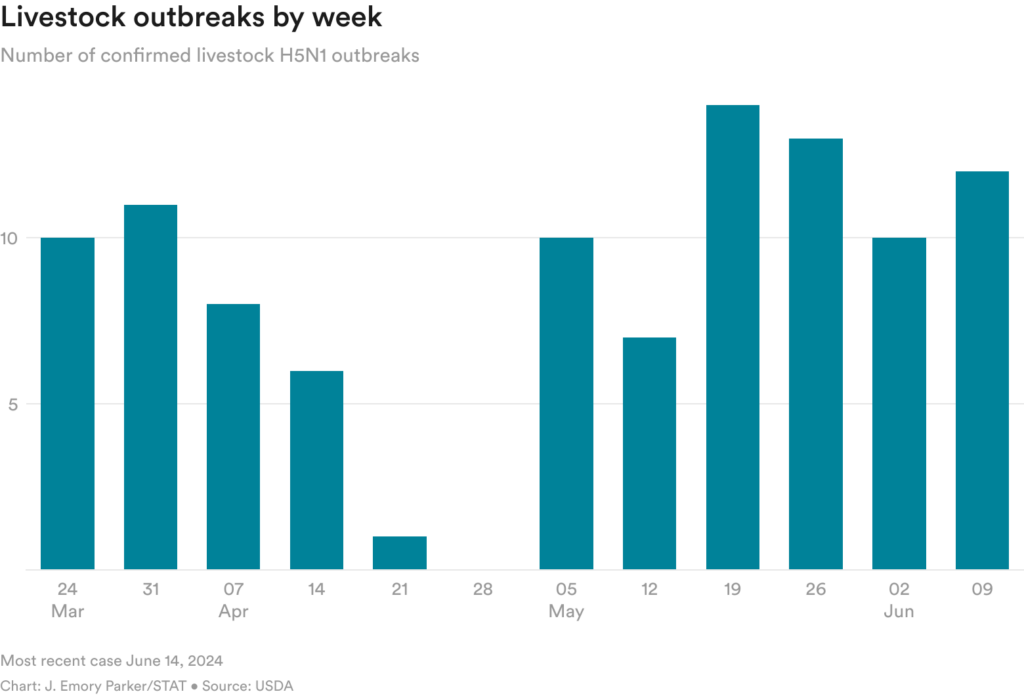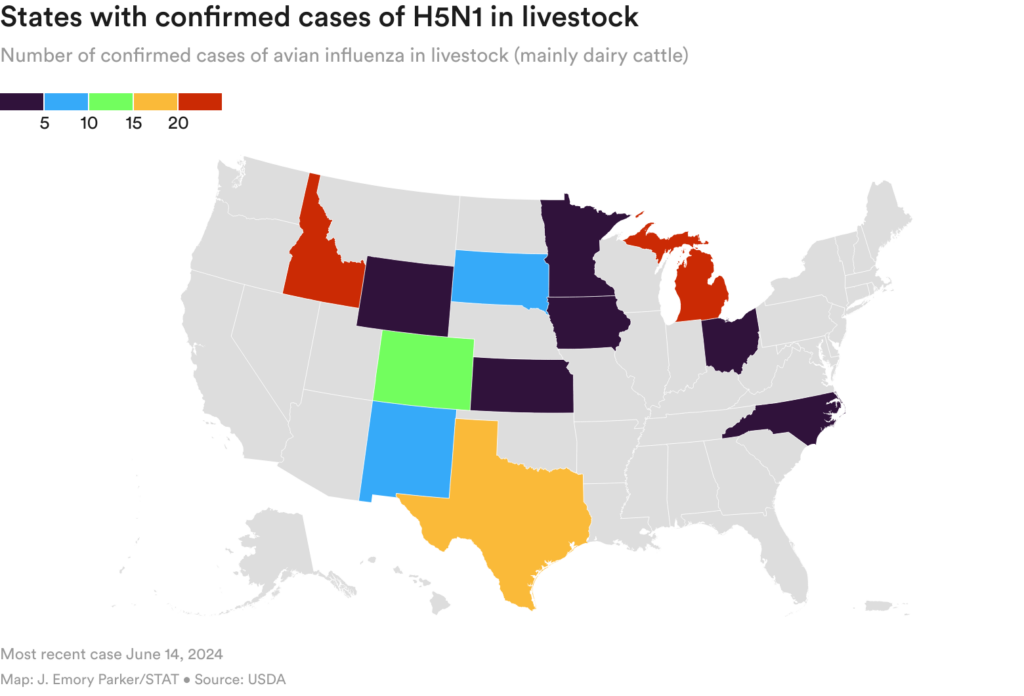
Bird flu snapshot: This is the first in a series of regular updates on H5N1 avian flu that STAT is publishing on Monday mornings. To read future updates you can also subscribe to STAT’s Morning Rounds newsletter.
Seth Berkley, the former head of Gavi, the Vaccine Alliance, gave voice last week to a point of view STAT has been hearing for a while about the U.S. response to the H5N1 bird flu outbreak in dairy cows. “It’s been shocking to watch the ineptitude,” Berkley, an American currently living in Switzerland, said at an event on the future of vaccines held in London.
Berkley was talking, among other things, about the surveillance being done to try to get a handle on how widespread the outbreak has actually become. It has been nearly three months since the virus was first identified in cattle, and the country is no closer to an answer to that question. As of Friday, the U.S. Department of Agriculture had confirmed infections in 102 herds in 12 states; Iowa, one of the latest states to report infected herds, announced it had found two more that haven’t yet made it to the USDA list. To date three people — all farmworkers — have contracted the virus from cows.

Have any of the affected herds cleared their infections? If so, how many? The USDA couldn’t answer those questions on Thursday. And yet Agriculture Secretary Tom Vilsack confidently declared at a press conference earlier this month that his department feels it knows how the virus is moving between herds and how to stop it. “We are trying to essentially corner the virus,” Vilsack said, despite the fact that operators of only 11 of the affected herds have applied for USDA help to improve biosecurity on their farms and defray testing costs.
The government’s seeming inability to get farmers to disclose that they have infected animals has many worried observers wishing more states were doing what Michigan’s doing. True, it has more declared herds than any other state. But that’s because its response is more robust, fans of the state’s approach say. “One of our mantras is if you don’t test for it you don’t find it,” the state’s chief medical executive, Natasha Bagdasarian, told STAT in an interview.

To submit a correction request, please visit our Contact Us page.











STAT encourages you to share your voice. We welcome your commentary, criticism, and expertise on our subscriber-only platform, STAT+ Connect